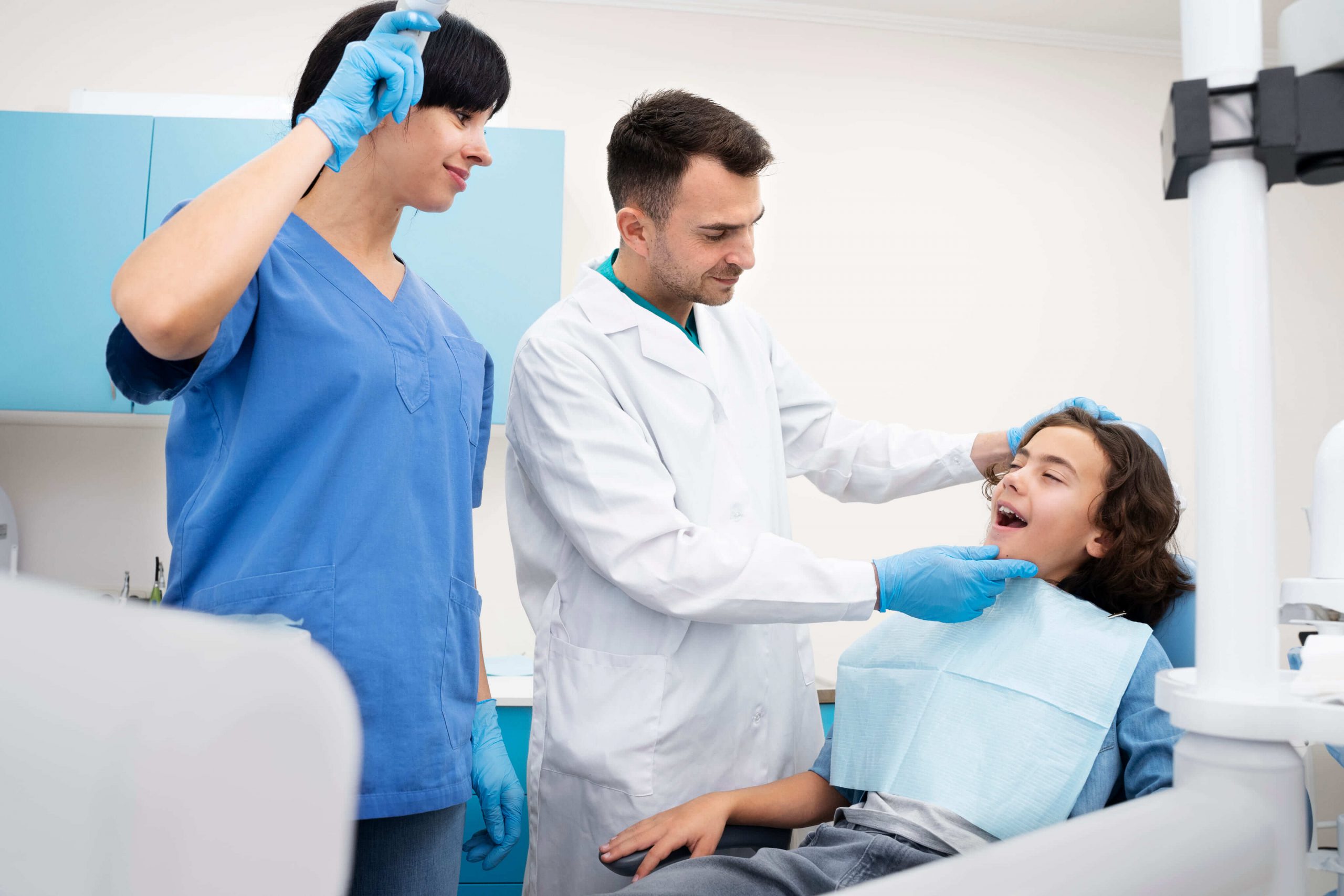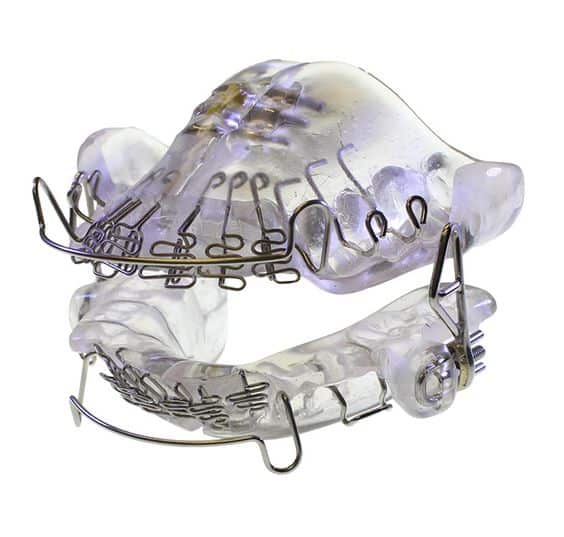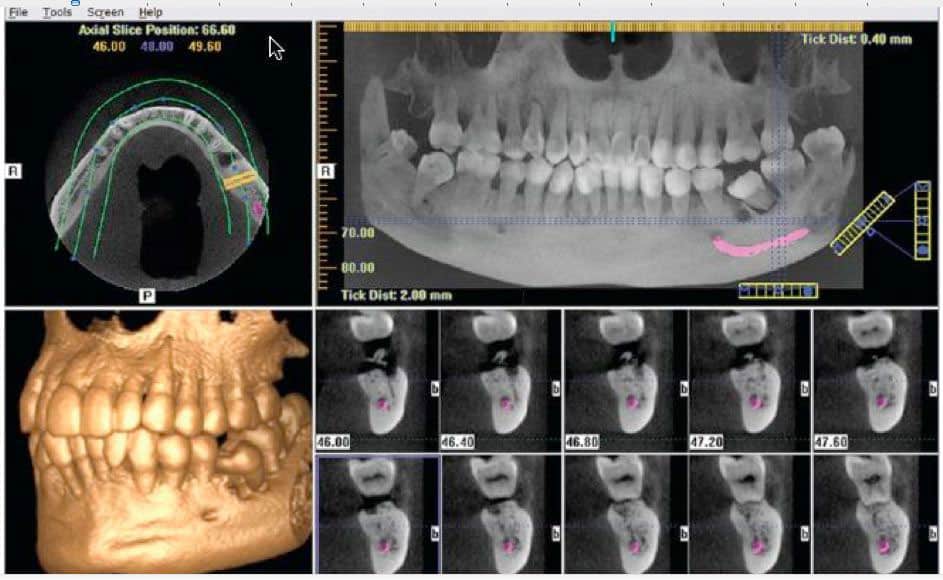
Homeoblock Appliance is an alternative to jaw surgery
99% of the time surgery is not necessary to correct orthodontic or tmj problems. There are many treatments to consider that correct TMJ and bad bites that do not involve surgery. If you are being told by an orthodontist that you need surgery, you should get another opinion, because there are appliances that can correct underbites, crossbites, deep bites and joint pain. Often times orthodontists are not aware of some of the available adult appliances and how to use them. The Vivos DNA and homeoblock appliances are examples of effective non surgical treatment alternatives to jaw surgery. The Vivos and Homeoblock are adult facial growth appliances. These appliances change the size a shape of the jaw bone and are a lot different than orthodontics that usually changes teeth positions only.

Vivos MRNA Photo
Reasons not to get Jaw surgery:
- Better non surgical treatment options exist that have better outcomes than surgery, cost less money and non surgical complications
- It will be all over when you wake up and you may not like it
- Surgical complications can happen.
- Long recovery time. Your jaw will be wired for weeks
- Lots of pain and swelling
- Jaw surgeries do not have a high success rate. You could actually get worse
- It costs a lot of money
- You will need months if not years of treatment with braces afterwards.
Non-surgical Treatment Options for TMJ and Jaw Pain
TMJ problems can cause severe pain
TMJ pain is among the most serious conditions affecting your face, jaws and muscles involved in chewing and biting food. Early diagnosis and management is essential for avoiding progression of the disorder and development of complications. Complete history and thorough check of TMJ and surrounding area is necessary before planning treatment of the problem.
Diagnosis and Preventative Treatment for Children:
Palatal Expanders and other growth appliances exist for children. Many kids suffer from under development of the jaw and facial bone. Diagnosis and treatment from a qualified professional can prevent the need for future jaw surgery. Signs of problems to come are crooked teeth, poor sleep and even pediatric sleep apnea.
Expanders and Growth Appliances for Kids
- Schwarz Appliance
- Advanced Lightwire Functional aka ALF
- Crozat Appliance
- Twin Block
- Myo Brace
What is TMJ pain disorder?
TMJ pain disorder is the condition in which your face and mouth suffers from pain and discomfort during talking, laughing, eating, drinking, chewing, biting, yawning and all activities involving muscles of the face and mouth. Temporomandibular joint is the joint which connects the jaw bones to skull. If you are having symptoms, you should consult with a qualified professional.
What Are TMJ Symptoms?

TMJ disorder symptoms usually presents as pain and discomfort in the affected area of your face and mouth. In addition to feeling of pain, majority of TMJ cases are presented with popping and clicking noises when you open or close your mouth during talking, eating or chewing food. Clicks may occur during both opening and closing your mouth.
- Difficulty in opening your mouth in the morning when you wake up from sleep,
- Locked jaws,
- Soreness of mouth in the morning,
- Tense/taut jaws,
- Teeth grinding and clenching (bruxism),
- Limited mouth and jaws movements,
- Pain and discomfort during jaw movements i.e. both upside down and sideways,
- Worn teeth,
- Toothache,
- Cracked and broken teeth in severe cases,
- Previous history of multiple dental treatments i.e. root canal treatments, dental implants, teeth whitening, dental fillings, dental bridges and crowns,
- Gum recession,
- Bone loss around teeth,
- Difficulty of breathing during night as the tongue falls back and blocks airway (sleep apnea),
- Pain and discomfort on chewing and biting food,
- Severe pain within and around your ears (earache),
- Severe pain and discomfort in your temple area, behind eyes and back of the head,
- Temporary loss of vision due to stress,
- Flu and sinus irritation,
- Chipping and cracking of teeth,
- Pain and discomfort in shoulders, neck, head and back,
- Problems in bite between upper and lower teeth,
- Loss of appetite.
When is Jaw Surgery Necessary?
It is not always necessary to opt for surgical jaw treatments in TMJ pain and orthodontic cases. Many non-surgical TMJ treatments are available and work. Surgical intervention is usually avoided at all costs as conservative and symptomatic treatments usually suffice and give excellent outcomes. In fact, majority of cases require conservative and non-invasive treatment planning. However, when your TMJ specialist has tried all non-surgical option or thinks severity of the disease required surgical procedures, these should be performed. Whenever surgical treatment is deemed necessary by the TMJ expert, it is usually performed in the least invasive manner possible.

3d xray Cone Beam north bethesda
What are the Non-surgical Treatments for TMJ?
Majority of TMJ pain cases are treated with the help of self-management exercises at home and conservative treatments by the TMJ specialists. The course of treatment is usually guided by the cause of problem. Your TMJ specialist will evaluate the condition before planning treatment for you. The two treatments that can correct TMJ without surgery:
- DNA Appliance Therapy
- ALF Appliance treatment
- natural orthodontics
- Other conventional treatments available:
- Splint and occlusal guard treatment
- Cognitive behavioral therapy which includes patient counseling, reassurance and education about the cause of TMJ pain,
- Reversal/prevention of habits which damaging and aggravating TMJ pain,
- Educating patients about exercises which will help in proper use of jaws during chewing, biting and eating,
- Use of thermotherapy (both hot and cold) through moist heat pads and cold packs on painful and taut/strained muscles,
- Physiotherapy techniques involving massaging painful muscles,
- Stretching exercises for increasing limited mouth opening,
- Co-ordination and mobilization exercises for achieving controlled jaw movements,
- Physiotherapy should be started as soon as possible. It will provide best results in early course of treatment,
- Use of soft stabilization splints,
- Rest,
- Ultrasound,
- Trans-electric nerve stimulation (TENS) jaw muscles relaxation and reducing pain/discomfort,
- Correction of disturbed jaw bite with the help of braces,
- Botox injections,
- Various medications for reducing pain, discomfort and anxiety which will help in the treatment of TMJ pain i.e. Non steroidal anti-inflammatory drugs (NSAIDs), Tri-cyclic anti-depressants (TCAs), anxiolytics, anti-epileptics and cortico-steroids,
Lifestyle changes can help in the management of TMJ pain?
Your lifestyle and daily habits can be crucial in avoiding TMJ pain and discomfort. Your mouth functions throughout the day and needs rest as well. Following are very important for the prevention and management of TMJ pain.
- Refrain from biting hard nuts and crunchy foods when you have TMJ discomfort,
- Avoid taking sticky foods in this condition,
- Taking soft diet will help in easing and relieving your TMJ pain,
- Reduce stress and anxiety,
- Avoid gum chewing,
- Avoid sleeping on the affected side,
- Avoid putting telephone cradle on the affected side,
- Avoid wide yawning.
Surgical treatment options
Surgery is advised by the TMJ specialists as a last resort when all non-invasive procedures fail and do not provide the anticipated results. However, least invasive surgery will be opted first and more invasive procedures will only be performed when all other options become irrelevant. Surgical procedures which can benefit for the treatment of TMJ pain disorder are,
- Arthrocentesis is the least invasive surgery and you can go home on the same day following this treatment,
- Modified condylotomy,
- Disc re-positioning,
- Discectomy,
- Joint replacement.
Jaw Surgery Complications
We aim to perform safe surgical procedures. You must go for an expert TMJ surgeon whenever it is planned to opt for surgical treatment. However, complications which can occur during surgery are,
- Infection,
- Bleeding problems,
- Problems associated with general anesthesia,
- Nerve or blood vessel damage,
- Failure of surgical treatment.

 (301) 421 1996
(301) 421 1996 burtonsvillesmiles@gmail.com
burtonsvillesmiles@gmail.com